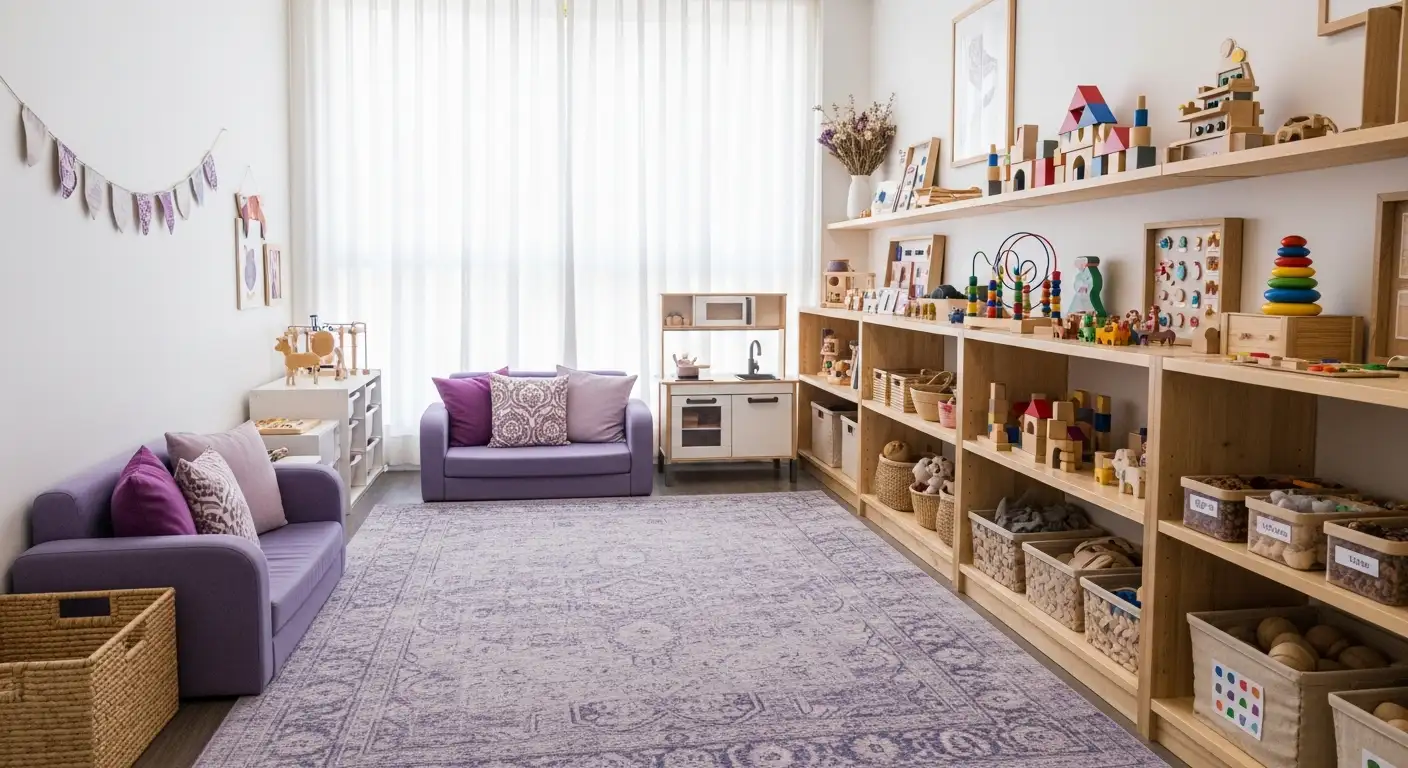Understanding the College Experience for Students with Autism
As the number of students with autism spectrum disorder (ASD) attending college rises, so do the unique challenges they face. From heightened anxiety and depression to difficulties in social communication and academic performance, autistic students often navigate complex barriers that can affect their success and well-being. This article explores the multifaceted experience of going to college with autism, the available supports—including therapy approaches like Applied Behavior Analysis (ABA)—and areas needing further development to foster inclusive and effective higher education environments.
Mental Health Challenges Among College Students with Autism
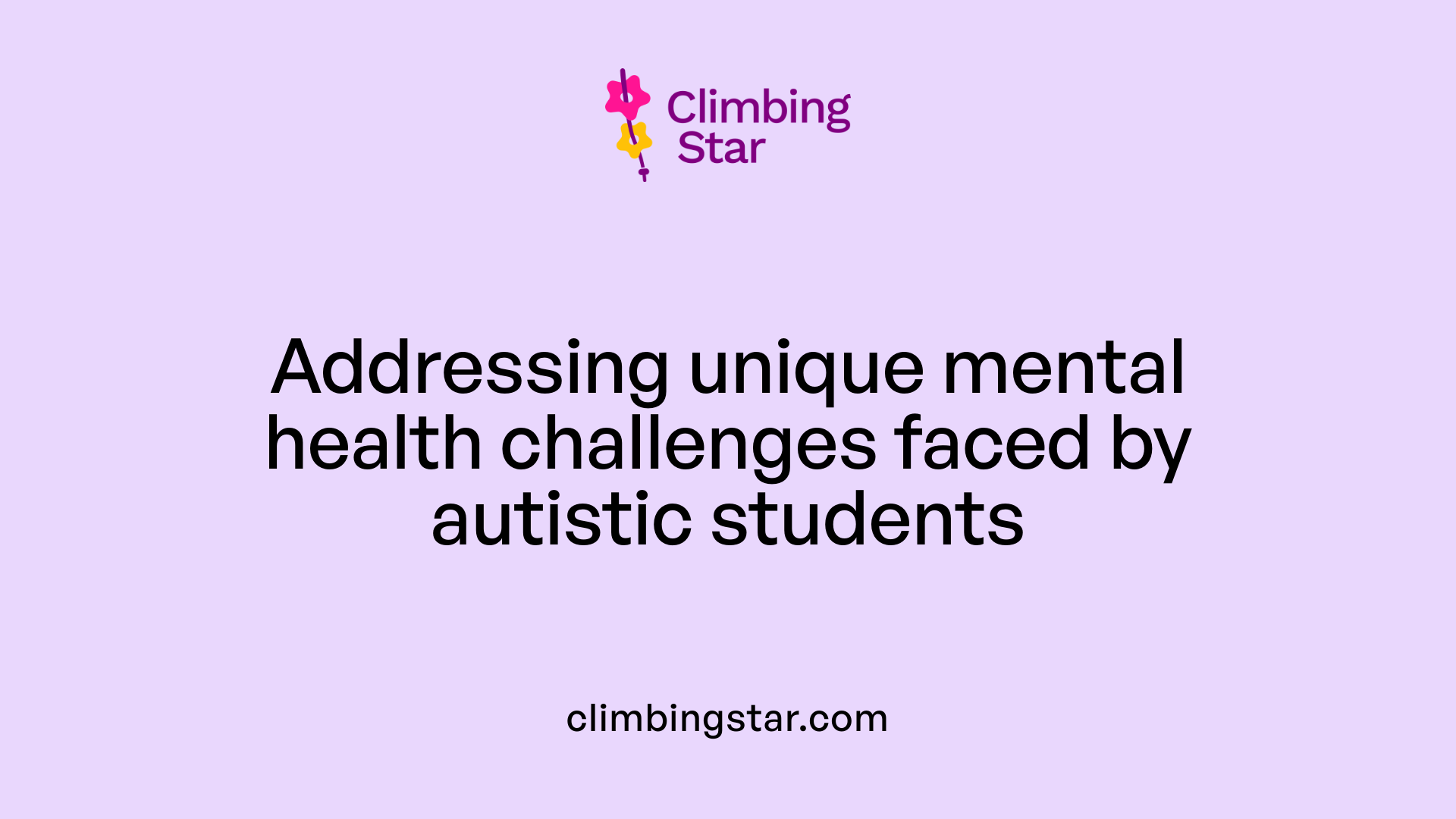
What mental health challenges do college students with autism face?
Students with autism spectrum disorder (ASD) in higher education often experience high rates of anxiety, depression, and stress. These mental health challenges significantly interfere with their academic progress and overall college experience. Depression, anxiety, and stress can create barriers to concentration, participation, and completion of coursework.
How do mental health issues impact academic success?
The presence of these mental health struggles is closely linked to difficulties in academic achievement. Many autistic students report that such challenges directly affect their ability to succeed in college. Stress and depressive symptoms can lower motivation and impair executive functioning, making it harder to keep up with demanding academic environments.
What are the rates of suicide ideation among these students?
Alarmingly, some studies reveal that up to 53.6% of college students with ASD have contemplated suicide within a year. This high incidence highlights the urgent need for targeted mental health interventions and preventive support systems that address the unique experiences of autistic individuals.
Are mental health supports adequate in colleges?
While many campuses offer counseling services, there is a notable gap in autism-informed mental health supports. Mental health providers and counseling centers often lack sufficient knowledge about autism, limiting their ability to offer effective, tailored assistance. This deficiency results in students with ASD not fully benefiting from available mental health resources.
Why is autism-informed counseling important?
Autism-informed counseling recognizes the distinct communication styles, sensory sensitivities, and emotional regulation challenges faced by autistic students. Without appropriate training, mental health professionals may misinterpret behaviors or fail to meet these students' needs fully. Provision of specialized training and outreach can create a more accessible and supportive environment that encourages autistic students to seek help and thrive academically and socially.
Academic and Non-Academic Supports Available to Students with Autism
What kinds of academic and non-academic supports exist for college students with autism?
Students with autism spectrum disorder (ASD) in higher education have access to a variety of supports tailored to their unique needs, both academic and non-academic.
Academic supports mainly focus on addressing challenges in learning and executive functioning. These include:
- Tutoring: Personalized academic assistance to help students grasp course material and manage workload.
- Testing accommodations: Extended time, quiet testing environments, or alternative formats to reduce test anxiety and enhance performance.
- Coursework modifications: Adjustments to assignments or deadlines to better suit individual processing speeds and learning styles.
On the other hand, non-academic supports aim to improve social integration and emotional well-being. Key offerings are:
- Social skills training: Programs designed to enhance interpersonal communication and manage social situations more effectively.
- Peer-mediated support: Mentoring or buddy systems where trained peers provide guidance and companionship.
- Counseling services: Access to mental health professionals familiar with ASD-related challenges.
- University disability services: A hub for coordinating various accommodations, advocacy, and resources for students with disabilities.
Why might students underutilize these supports?
Despite the availability of these resources, many students do not take full advantage of them. A primary barrier is nondisclosure of their ASD diagnosis. Many students choose not to disclose this information due to concerns about stigma, privacy, or uncertainty about eligibility. This nondisclosure limits their ability to access tailored supports, as accommodations often require formal documentation.
Furthermore, some institutions show disparities in the development of support systems. While non-academic services like social skills programs are more widely implemented, academic supports sometimes lag behind, leaving gaps in comprehensive assistance.
By improving awareness and providing safe environments for disclosure, colleges can better connect students with the full range of support tailored to help them succeed both academically and socially.
Gaps and Needs in Academic Support Systems for Autistic Students
How developed are academic supports compared to non-academic supports?
Academic support systems for students with autism spectrum disorder (ASD) in higher education are noticeably less developed than non-academic supports. While universities often offer tutoring, testing accommodations, and coursework modifications, these measures seem to receive less focus than interventions aimed at social and emotional areas. Non-academic supports such as social skills training, peer-mediated assistance, and counseling services are more prevalent and better established across campuses. This imbalance may reflect greater awareness of social challenges in ASD, but it inadvertently overlooks academic hurdles.
What is the role of executive functioning skills in support programs?
Many postsecondary institutions have introduced programs that particularly target executive functioning skills for students with ASD. These skills include organization, time management, planning, and attention regulation, which are crucial for academic success. Despite this positive step, few programs extend support into broader mental health or wellness areas, which also critically affect academic performance. Enhanced executive functioning support can help students manage coursework and deadlines more effectively, yet it remains only one aspect of comprehensive academic accommodation.
Why is there a need for improved academic accommodations?
Students with ASD experience significant academic challenges compounded by anxiety, depression, and stress, all of which interfere with their college success. However, many do not fully utilize available supports due to nondisclosure of their diagnosis, which limits access to tailored accommodations. Furthermore, the existing academic support infrastructure often does not sufficiently address individual needs or adapt to the diversity of challenges autistic students face. Increasing focus on personalized academic accommodations — alongside raising awareness and encouraging disclosure — is essential to improve graduation rates and overall student outcomes.
| Support Type | Level of Development | Impact Areas |
|---|---|---|
| Academic Supports | Less prevalent, emerging focus | Tutoring, accommodations, executive skills |
| Non-Academic Supports | More established and widespread | Social skills, peer support, counseling |
| Mental Health Supports | Limited autism-specific resources | Anxiety, depression, stress management |
Enhancing academic supports by integrating executive functioning training with mental health awareness and personalized accommodations can create a more balanced and inclusive environment for autistic college students.
Applied Behavior Analysis (ABA) Therapy: An Overview
What is Applied Behavior Analysis (ABA) therapy, and how does it help individuals with autism?
Applied Behavior Analysis (ABA) therapy is a scientifically based intervention widely used to support individuals with autism spectrum disorder (ASD). It focuses on improving socially significant behaviors through understanding and modifying the relationship between antecedents (what happens before a behavior), behaviors themselves, and consequences (what happens after).
Core principles and structured approach
ABA employs a structured, data-driven approach that breaks down complex skills into smaller, teachable steps. By analyzing how behaviors are acquired and maintained, ABA programs customize interventions that enhance communication, social interaction, and daily living skills while reducing challenging behaviors. Positive reinforcement is a cornerstone, where desired behaviors are encouraged by rewarding success, making learning motivating and meaningful.
Goals to improve communication, social interaction, and daily living skills
The primary goal of ABA therapy is to develop practical skills that increase independence and quality of life for individuals with autism. This includes improving language and communication abilities, fostering social engagement, and teaching essential routines for daily living. ABA helps build foundational skills that enable better academic performance, peer relationships, and self-care.
Common techniques such as Discrete Trial Training (DTT), Pivotal Response Treatment (PRT), and Early Start Denver Model (ESDM)
Several evidence-based ABA techniques are widely utilized:
- Discrete Trial Training (DTT): Breaks skills into small components and teaches them step-by-step using repeated trials.
- Pivotal Response Treatment (PRT): Focuses on pivotal areas like motivation and response to multiple cues to encourage widespread behavioral improvements.
- Early Start Denver Model (ESDM): Integrates ABA principles with developmental approaches for young children to promote early learning and engagement.
Research on effectiveness and outcomes
Research indicates that early, intensive ABA interventions lead to substantial gains in language skills, cognitive functioning, and adaptive behavior in individuals with autism. These improvements contribute to greater independence and better long-term outcomes, including academic achievement and social integration. ABA remains one of the most validated and widely recommended therapies for autism, supported by a strong foundation of scientific evidence.
Who Provides ABA Therapy and How Is It Delivered?
Roles of Board Certified Behavior Analysts (BCBAs)
ABA therapy for individuals with autism is primarily overseen by Board Certified Behavior Analysts (BCBAs). These professionals are responsible for assessing the individual's behaviors, developing customized intervention plans, and continuously monitoring progress. Their role involves designing evidence-based strategies that address specific needs and goals for the client, ensuring that the therapy is both effective and personalized.
Roles of Registered Behavior Technicians (RBTs) and Behavior Therapists
While BCBAs create and manage the treatment plans, Registered Behavior Technicians (RBTs) and behavior therapists carry out the day-to-day therapy sessions. They work directly with individuals with autism, implementing the techniques laid out by the BCBA. Their responsibilities include delivering one-on-one therapy, applying positive reinforcement strategies, and breaking complex skills into smaller, manageable steps to help the individual learn effectively.
Settings for ABA Therapy Delivery
ABA therapy can take place in a variety of settings that best suit the individual's needs. These include clinics, homes, schools, and community environments. The flexible delivery settings allow therapy to be integrated into daily routines and social contexts, promoting generalization of skills across different environments.
Collaboration and Individualized Treatment Planning
A fundamental aspect of ABA therapy is collaboration among the BCBA, RBTs, families, educators, and other relevant professionals. This teamwork ensures that the treatment plan aligns with the individual's unique strengths, challenges, and goals. Individualized treatment planning is responsive to progress and changing needs, with regular adjustments made to optimize outcomes.
| Provider | Main Responsibilities | Delivery Environment |
|---|---|---|
| Board Certified Behavior Analyst (BCBA) | Assessment, intervention design, progress monitoring | Clinics, schools, homes, community |
| Registered Behavior Technician (RBT) | Direct therapy implementation, skills teaching, reinforcement | Clinics, homes, schools |
Overall, ABA therapy is delivered through a collaborative and tailored approach involving trained professionals across diverse settings to support individuals with autism in achieving meaningful behavioral and skill development goals.
Common Techniques Used in ABA Therapy for Autism
What are some common techniques used in ABA therapy for autism?
Applied Behavior Analysis (ABA) therapy employs a variety of well-established techniques to support individuals with autism in developing new skills and reducing challenging behaviors.
One of the core methods is positive reinforcement, which involves rewarding desired behaviors to encourage their recurrence. This technique helps create a motivating learning environment.
Discrete Trial Training (DTT) breaks down complex skills into small, manageable steps. Each step is taught systematically through repeated, structured teaching trials, promoting effective skill acquisition.
To aid learning while fostering independence, prompting and fading are used. Prompts guide the learner to the correct response initially, and gradually, these prompts are faded out as the learner gains competence.
When teaching action sequences, behavior chaining connects individual behaviors into a fluid chain, allowing the learner to complete multi-step tasks independently.
The ABC (Antecedent-Behavior-Consequence) model is pivotal for understanding behavior by examining what triggers a behavior (antecedent) and what follows it (consequence), thereby facilitating targeted interventions.
Ongoing data collection is integral to ABA therapy. Tracking responses and progress ensures interventions are effective and allows for informed adjustments.
Visual aids, such as modeling, Picture Exchange Communication System (PECS), and behavior contracts, offer concrete and clear supports that help clarify expectations and enhance communication.
Together, these techniques form a comprehensive toolkit to tailor interventions that enable individuals with autism to learn, grow, and thrive.
Measuring Effectiveness of ABA Therapy
Systematic Data Collection
The effectiveness of Applied Behavior Analysis (ABA) therapy in individuals with autism is primarily measured through systematic data collection. This means therapists focus on recording specific, observable behaviors such as communication skills, social interactions, and adaptive behaviors regularly during therapy sessions.
Tracking Observable Behaviors
By concentrating on well-defined behaviors, therapists can monitor real progress. These behaviors are clearly identified and observable, making it easier to assess improvements or challenges over time.
Use of Graphs and Metrics
Therapists typically track progress using quantitative metrics that are recorded consistently. These data points are often visually represented with graphs, allowing both therapists and families to see trends and changes over the course of therapy.
Regular Assessments and Plan Adjustments
Ongoing assessments help determine whether goals are being met. If progress is slower than anticipated or goals are achieved, therapists adjust the intervention plan to better suit the needs of the individual.
Standardized Assessments and Parental Reports
In addition to session data, standardized assessments and reports from parents or caregivers provide a broader understanding of how therapy impacts everyday functioning. These tools complement direct observations and support objective evaluation.
Through this combined, data-driven approach, ABA therapy ensures continuous monitoring and optimization to improve outcomes for individuals with autism.
Age Groups Benefiting from ABA Therapy
What age groups can benefit from ABA therapy?
ABA (Applied Behavior Analysis) therapy is beneficial across a wide age range, from infancy through adulthood. This comprehensive approach to behavioral intervention is highly adaptable, making it suitable for individuals at various developmental stages.
Applicability across all ages
ABA therapy is not limited to young children; individuals of all ages with autism spectrum disorder can experience improvements through tailored ABA programs. While the methods and goals may vary, the foundational principles of ABA therapy support skill acquisition and behavior management universally.
Optimal early intervention ages 2 to 6
The most significant gains from ABA therapy typically occur when intervention begins early, particularly between ages 2 and 6. During this critical developmental window, children show enhanced progress in language, social interaction, and adaptive behaviors.
Early Start Denver Model (ESDM) for infants
For even younger children, including infants as young as 6 months, the Early Start Denver Model integrates ABA strategies in a naturalistic, play-based framework. This approach targets early developmental milestones and can foster key skills during infancy.
Adaptations for older children, adolescents, adults
For older children, teenagers, and adults, ABA therapy is adapted to focus on more complex social skills, emotional regulation, vocational training, and reducing challenging behaviors. Tailored interventions help these individuals increase independence and improve their quality of life.
Overall, ABA therapy’s flexibility allows it to cater to diverse needs across the lifespan, emphasizing early intervention while remaining effective for older individuals with autism.
Criticisms and Limitations of ABA Therapy
Are there any criticisms or limitations associated with ABA therapy?
Applied Behavior Analysis (ABA) therapy has faced significant criticism related to its approach and impact on individuals with autism. One major concern is the rigidity and intensity of the therapy. ABA often focuses on encouraging behaviors that conform to social norms and reducing those that don't, which some argue prioritizes societal acceptance over the emotional well-being and authenticity of the autistic individual.
Historically, ABA included the use of aversive methods—such as punishment or negative reinforcement techniques—to reduce unwanted behaviors. While modern ABA practices have largely abandoned these harsh tactics, the history contributes to ongoing skepticism about the therapy’s ethical considerations.
The repetitive and structured nature of ABA sessions may cause stress, anxiety, or even trauma if the therapy is not carefully tailored to the individual's needs. This intensity can lead some autistic individuals to feel overwhelmed or pressured, which contradicts the goal of supporting their development.
A particularly controversial aspect is the effect of ABA on natural autistic behaviors like stimming (repetitive self-stimulatory actions). Critics argue that suppressing such behaviors may lead to masking, where individuals hide their natural responses to fit in. This masking can increase stress and contribute to mental health challenges such as anxiety and depression.
Therefore, ethical and individualized application of ABA therapy is crucial. This involves respecting the unique identity and preferences of the autistic person, rather than enforcing generalized behavioral goals. Therapy that acknowledges and supports the individual's well-being and self-expression is essential for truly effective and humane intervention.
Social and Psychological Challenges in Postsecondary Education for Autistic Students
What social and psychological challenges do autistic students face in college?
Autistic students in higher education often experience significant social and psychological difficulties. Loneliness and social isolation are common, as these students may find it challenging to build peer connections in new academic environments.
How do anxiety and depression affect autistic students?
Rates of anxiety and depression are notably high among college students with autism spectrum disorder (ASD). Many report these conditions interfere with their academic performance and general well-being. In fact, up to 53.6% of such students have considered suicide within the past year, underlining the critical nature of their mental health struggles.
Do these challenges impact academic success?
Yes, these psychological struggles contribute to lower graduation rates among autistic young adults attending postsecondary institutions. Stress from mental health issues can also disrupt academic focus and performance.
How are suicidal behaviors addressed in the context of college students with ASD?
Suicidal ideation among autistic students is a pressing concern requiring targeted mental health supports. Unfortunately, campus counseling centers frequently lack autism-specific knowledge, affecting quality of care and accessibility.
What overall impacts do these challenges have?
The combined effects of loneliness, social isolation, anxiety, depression, and suicidal behaviors can severely hinder the college experience, making it crucial to develop comprehensive support systems that address both social integration and mental health for autistic students.
Intervention Programs Supporting College Students with Autism
What types of intervention programs support college students with autism?
Several intervention programs have been implemented to support college students with autism spectrum disorder (ASD), focusing on enhancing their social, academic, and emotional well-being.
How effective is mentoring for students with ASD?
Mentoring programs show high satisfaction rates among students with ASD. They help reduce feelings of social isolation while improving both social and academic skills. Peer mentoring often involves one-on-one guidance tailored to the student’s motivational interests, which fosters social integration and boosts self-esteem.
What role does social skills training play?
Social skills training is a cornerstone intervention that equips autistic students with practical communication and organizational skills. Structured programs combining weekly meetings, social activity planning, and peer mentoring have led to increased participation in community events and extracurricular activities. These interventions also contribute to better academic performance and greater satisfaction with college life.
How do group therapy and support groups benefit autistic students?
Group therapy and support groups provide a safe and supportive environment for students to share experiences, normalize challenges, and develop problem-solving strategies. Such groups diminish social isolation by fostering peer support and improving emotional regulation, which is crucial given the high rates of anxiety and depression among this population.
Is cognitive-behavioral therapy (CBT) used in these settings?
CBT has been employed to address emotional regulation and mental health concerns among college students with ASD. While many programs target executive functioning and social skills, CBT specifically helps manage anxiety and depressive symptoms, promoting better mental health outcomes.
What is the overall impact of these interventions?
Studies suggest that tailored intervention programs—particularly those combining mentoring, social skills training, group therapy, and support groups—effectively promote social integration, enhance academic success, and improve emotional well-being. While existing research highlights positive outcomes, there is a recognized need for more rigorous studies, including randomized controlled trials, to deepen understanding and optimize these supports.
Benefits of Mentoring and Support Groups for Autistic Students in College
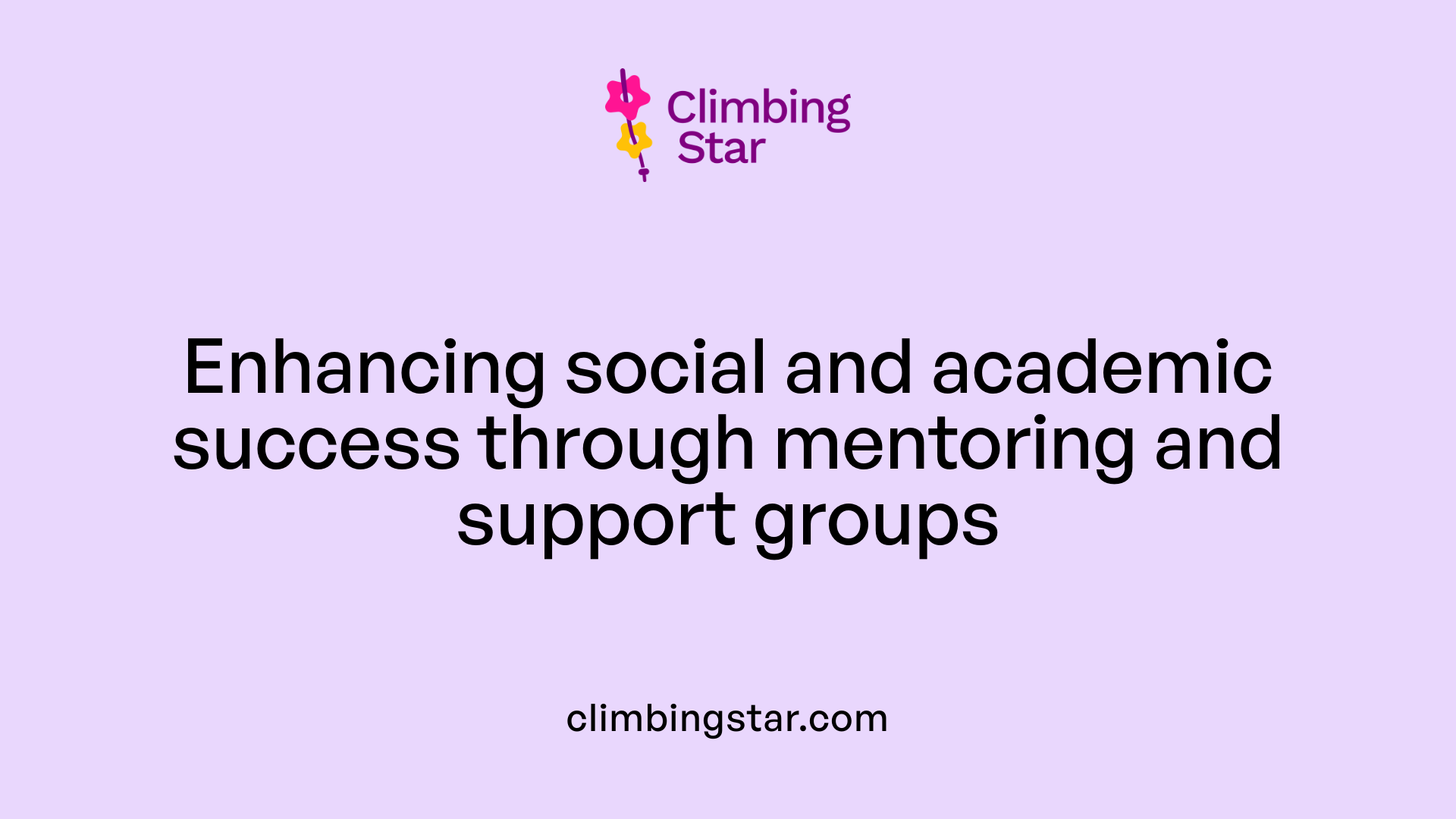
High Student Satisfaction Rates
Many postsecondary programs designed for students with autism spectrum disorder (ASD) incorporate mentoring and support groups. These interventions consistently report high satisfaction rates among participants. Students value the personalized guidance and understanding mentors provide, which helps them navigate academic challenges and campus life.
Reduction in Social Isolation
Mentoring programs and support groups address the common feeling of social isolation experienced by autistic students. By fostering peer connections and creating inclusive environments, these supports help students build meaningful social relationships. Participants often report feeling less lonely and more connected to their college community as a result.
Improvement in Social and Academic Skills
In addition to social benefits, mentoring and support groups contribute to the enhancement of academic skills. Structured interactions provide opportunities for students to practice communication, emotional regulation, and problem-solving skills. Programs combining social skills training, peer mentoring, and organizational support have been linked to improvements in both social participation and academic performance, including higher GPA scores.
Overall, mentoring and support groups serve a dual role in promoting both social integration and academic success for college students with ASD. Their availability and effectiveness highlight the need for universities to expand such initiatives, ensuring autistic students receive comprehensive support tailored to their unique needs.
Effectiveness of Structured Programs: Peer Mentoring, Social Skills Training, and Transition Support
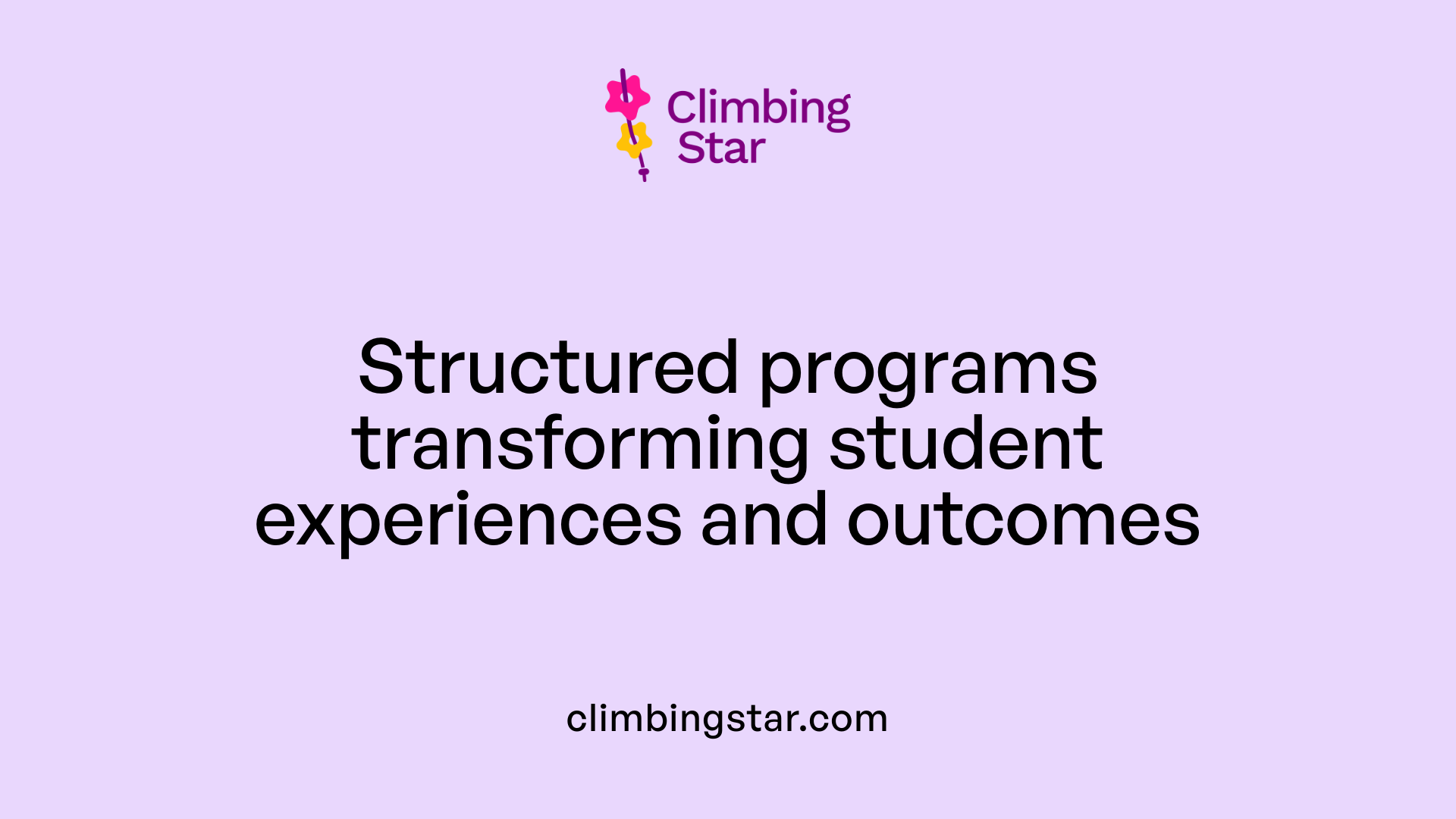
How do structured programs improve social support and academic performance for students with ASD?
Structured programs like peer mentoring, social skills training, and transition support play a crucial role in enhancing social integration and academic success among college students with autism spectrum disorder (ASD). These programs facilitate increased peer interactions and social activity participation, which directly correlates with better academic outcomes such as improved Grade Point Averages (GPA). For example, interventions that include weekly meetings, organizational skills training, and tailored social activities have demonstrated significant gains in both social engagement and academic performance, helping students navigate challenges unique to higher education environments.
In what ways do these programs increase self-esteem and emotional well-being?
Social skills training and mentoring programs not only provide practical support but also foster emotional growth and resilience. By creating environments where students with ASD can share experiences and learn coping strategies, such structured interventions boost self-esteem and reduce feelings of loneliness and isolation. Engaging in group therapy and support groups helps normalize their difficulties and builds a sense of community, which is vital for emotional well-being. Students report increased satisfaction with their social and college experiences following participation in these programs.
Can you give examples of such structured programs, including the RASE transition program?
A prominent example is the RASE transition program, which combines peer mentoring, social skills workshops, and organizational coaching specifically designed for students with ASD transitioning into college. This program, like others focusing on structured social planning, encourages participation in extracurricular and community-based social events, providing motivational guidance tailored to student interests. Research consistently shows that participants in RASE and similar initiatives experience enhanced social support networks, improved academic outcomes, and increased self-confidence, making these programs invaluable in supporting students with ASD through their collegiate journey.
Role of Group Therapy and Mentoring in Fostering Supportive Environments

How Do Group Therapy and Mentoring Help Students with Autism Share Experiences?
Group therapy and mentoring provide structured opportunities for students with autism spectrum disorder (ASD) to connect and share their personal experiences. These settings bring together students facing similar challenges, creating an environment where they feel understood and less isolated. This communal sharing fosters a sense of belonging that is often missing in traditional college settings.
How Does Group Collaboration Normalize Difficulties for Students with ASD?
In group therapy sessions and mentoring programs, students discuss their struggles openly, which helps normalize the hurdles associated with ASD. Recognizing that others experience similar issues reduces feelings of shame or uniqueness about their difficulties. This normalization is critical in lowering anxiety and depression, which are common among college students with ASD.
In What Ways Do These Programs Promote Practicing Problem-Solving Skills?
Both group therapy and mentoring emphasize active skill development. Students practice problem-solving in real-time through role-playing, discussion, and feedback. These opportunities allow them to develop practical strategies for social, academic, and emotional challenges in a supportive and interactive context.
Why Are Safe Settings Crucial for Students with ASD?
Safe, structured environments where students feel secure and accepted are vital for effective support. Group therapy and mentoring create such spaces by promoting respect, confidentiality, and empathy. In these settings, students can freely express themselves, experiment with new behaviors, and build confidence without fear of judgment or failure.
Together, group therapy and mentoring offer a multifaceted support system that addresses the emotional, social, and academic needs of college students with ASD. They build community, reduce isolation, and equip students with vital life skills, making these interventions invaluable components of higher education support services.
Need for More Rigorous Research on Intervention Strategies
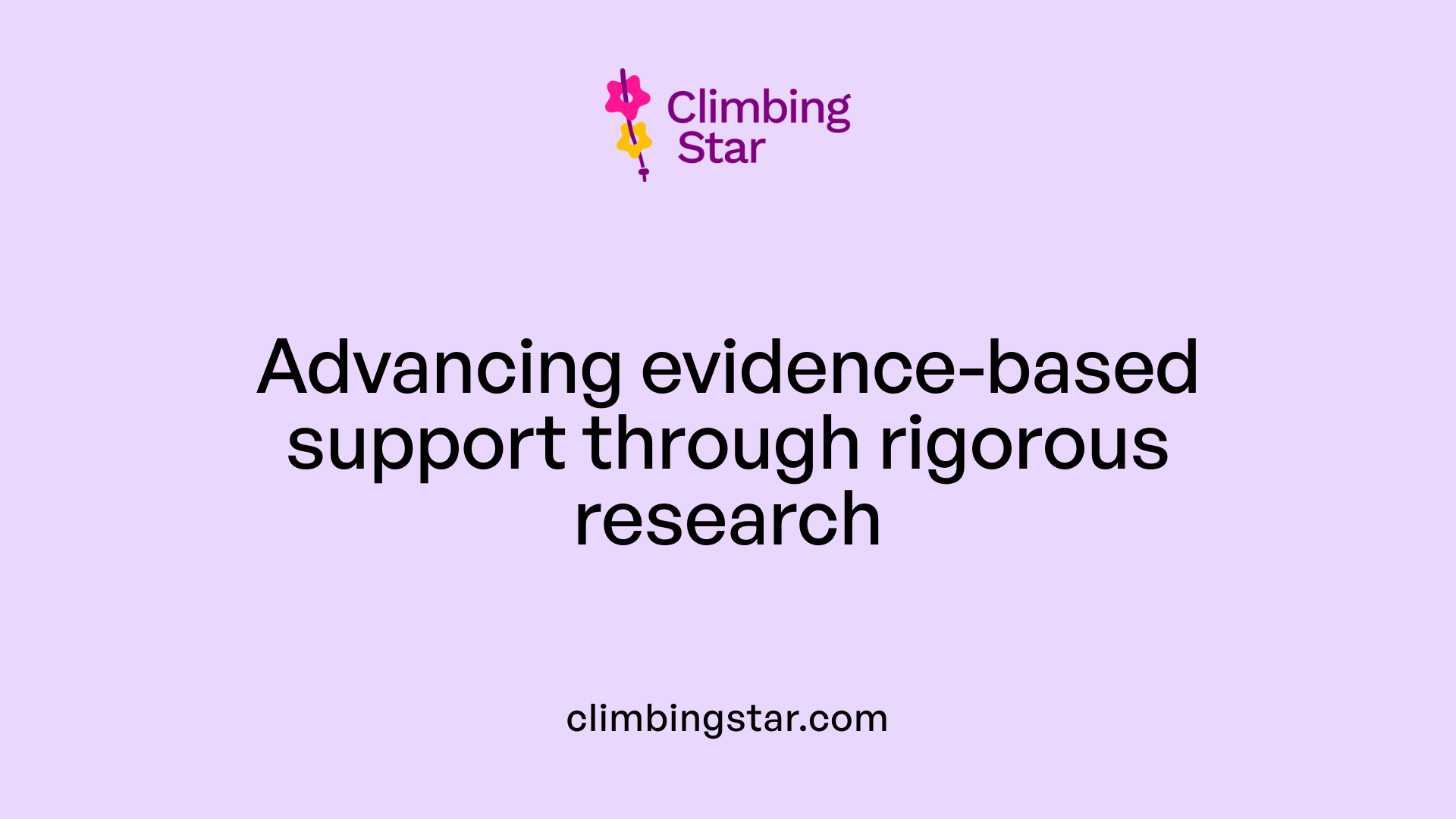
Why Are Randomized Controlled Trials Important?
Randomized controlled trials (RCTs) are considered the gold standard in research because they minimize biases and provide clear evidence about how effective an intervention is. For students with ASD in higher education, using RCTs can help universities develop truly effective programs that support both their academic success and mental health.
What Are the Limitations of Current Studies?
Currently, most studies on interventions for college students with ASD use small samples or varied methods, which can make results less reliable or generalizable. Many focus only on high-functioning individuals or specific skills like social participation, which leaves out a broad range of student needs. Without consistent approaches and larger participant groups, it is difficult to draw firm conclusions about what works best.
Why Do We Need Larger Sample Sizes?
Larger sample sizes improve the reliability and applicability of study outcomes. They help researchers understand how different students with ASD might benefit from interventions and allow for the development of personalized and comprehensive support systems. With more participants, findings become more valid and can influence institutional policies effectively.
How Can the Evidence Base Be Improved?
To strengthen research, the field needs well-designed RCTs with diverse student populations and clear outcome measures. Combining social skills training, academic supports, and mental health interventions in studies can show which combinations yield the best results. Additionally, involving autistic individuals in research design ensures that programs truly address their unique challenges and preferences.
In summary, advancing from small, varied studies to rigorous, large-scale trials is essential. This shift will enable institutions to implement evidence-backed strategies that enhance social integration, academic achievement, and emotional well-being for students with ASD in higher education.
Tailoring Interventions for High-Functioning College Students with ASD
Focus on Social Participation
For high-functioning college students with autism spectrum disorder (ASD), social participation is often a significant challenge. Structured social planning interventions have been shown to effectively increase engagement in community-based social events, extracurricular activities, and peer interactions. These programs typically include weekly meetings that facilitate social activity selection, organizational skills development, and peer mentoring. As a result, participants report greater satisfaction with their social experiences and a marked increase in peer connections.
Emotional Regulation
Emotional regulation support is critical for students with ASD, as anxiety, depression, and stress frequently interfere with their academic and social success. Intervention strategies such as cognitive-behavioral therapy (CBT), group therapy, and social skills training can help students manage these challenges. These approaches foster a supportive environment where students share experiences, normalize their difficulties, and develop coping strategies.
Academic Success
Academic supports integrated within these interventions, including tutoring, executive functioning skill development, and coursework modifications, contribute to students' academic improvement. In studies where personalized social planning was implemented, improvements in academic performance, including GPA, were documented alongside enhanced social participation.
Personalized Comprehensive Support
The most effective programs focus on personalized, comprehensive support addressing social, emotional, and academic needs collectively. Mentoring programs, support groups, and transition initiatives like RASE help develop students' social and academic skills, self-esteem, and emotional well-being. However, current research highlights the need for more rigorous, large-sample studies to optimize these interventions and tailor them further to individual student profiles.
| Intervention Component | Description | Impact on Students |
|---|---|---|
| Social Planning | Weekly meetings, social activity selection, peer mentoring | Increased social activities, satisfaction with social experiences |
| Emotional Regulation | CBT, group therapy, social skills training | Improved stress and anxiety management, emotional well-being |
| Academic Support | Tutoring, executive functioning training | Enhanced GPA and academic performance |
| Comprehensive Support | Mentoring, support groups, transition programs | Improved social skills, self-esteem, overall college experience |
Structured Social Planning Interventions and Their Impact
Increase in Social Activities
Structured social planning interventions for college students with autism spectrum disorder (ASD) have demonstrated a significant increase in social activities. These interventions focus on expanding students' engagement through organized efforts to enhance peer interactions and participation.
Community-Based Social Events
Community-based social events are a vital component of these interventions, providing opportunities for students with ASD to connect outside the classroom. Participating in such events helps reduce feelings of isolation and builds a supportive social network.
Extracurricular Participation
Students also benefit from involvement in extracurricular activities, which promote broader social inclusion. These activities enable students to explore interests and form friendships in informal settings that complement academic life.
Peer Interactions
Enhancing peer interactions is a central goal, aiming to foster meaningful relationships and improve social skills. Interventions encourage regular communication and shared activities with peers, contributing to improved emotional well-being.
Weekly Meetings and Motivational Strategies
Interventions typically include weekly meetings where students discuss their interests and set social activity goals. Motivational strategies are employed to encourage participation, helping students identify and select social opportunities that match their preferences.
Social Skills and Organizational Training
Providing training in social skills and organizational abilities is critical to supporting students’ successful engagement in social and academic contexts. These sessions teach strategies for effective communication, planning, and time management.
Peer Mentoring
Peer mentoring forms another important element, pairing students with ASD with trained peers who offer guidance and social support. Mentors assist in navigating social situations and academic challenges, fostering a sense of belonging.
Together, these structured social planning approaches have led to increased social activity and interactions, improved academic performance such as higher GPA, and greater satisfaction with college and social experiences. This personalized and comprehensive support shows promise for promoting long-term success and integration of students with ASD in higher education environments.
Positive Outcomes of Social Interventions for College Students with Autism
Increased peer interactions
Social interventions have been shown to significantly enhance the social lives of college students with autism spectrum disorder (ASD). Structured programs that include components such as weekly meetings, motivational strategies, peer mentoring, and social skills training help promote more frequent and meaningful peer interactions. These interventions encourage students to participate in community-based social events, extracurricular activities, and foster everyday peer connections, which are critical for social integration.
Academic improvements including GPA
An important benefit observed alongside increased social engagement is the improvement in academic performance. Students participating in tailored social support programs have reported enhancements in their grade point averages (GPA). By providing organizational skill training and opportunities to engage socially, these interventions indirectly contribute to better academic outcomes by reducing isolation and building executive functioning skills crucial for academic success.
Greater satisfaction with college and social experience
Students involved in social intervention programs also experience higher levels of satisfaction with their college and social lives. These supports help reduce feelings of loneliness and stress, creating a more positive overall college experience. Improved self-esteem and emotional well-being contribute to students feeling more connected and supported on campus.
Long-term benefits of social integration
Beyond immediate social and academic gains, social interventions promise valuable long-term benefits. Enhancing social integration can improve students’ emotional well-being and equip them with skills to sustain friendships and succeed both within and beyond college. This holistic approach boosts confidence and resilience, which are crucial for navigating postcollege life.
Together, these findings underline the importance of developing personalized social support programs in higher education settings. Such programs not only help address the unique social and academic challenges faced by students with ASD but also foster greater inclusion and mental wellness throughout their college journey.
Importance of Community Partnerships and Autistic Voices in Support Development
Why Is Community Collaboration Vital in Supporting Students with ASD?
Community partnerships play a critical role in shaping effective support systems for students with autism spectrum disorder (ASD) in higher education. By involving diverse community stakeholders—including educators, mental health professionals, families, and autistic individuals themselves—institutions gain a holistic understanding of students’ needs. This collaboration ensures that support services are not developed in isolation but are responsive to real-world challenges experienced by autistic students.
How Does Including Autistic Perspectives Improve Support?
Incorporating autistic voices directly into support development enhances both the relevance and acceptability of programs. When autistic individuals participate in designing and evaluating interventions, supports are better tailored to their lived experiences, preferences, and goals. This inclusivity helps reduce barriers such as mistrust or discomfort with services, encouraging greater engagement from students who might otherwise withhold disclosure of their diagnosis or underutilize available supports.
What Are the Benefits of Engaging Autistic Students in the Process?
Engagement fosters empowerment and ownership among autistic students, enabling them to advocate for themselves and influence institutional policies. It also promotes diversity of thought, ensuring services address a wide range of challenges—from social integration and mental health to academic success. Collaborative efforts have been linked to the development of supports that are more effective, compassionate, and sustainable over time.
Through intentional community partnerships and centering autistic voices, higher education institutions can enhance support programs, making them accessible, respectful, and genuinely helpful. These efforts form the foundation for improving social, academic, and emotional outcomes for students with ASD, ultimately contributing to their success and well-being in college environments.
Recommendations for Future Research and Support Development in Higher Education
What Are the Priority Areas for Future Research?
Future research must focus on four critical areas to improve support for college students with autism spectrum disorder (ASD). These include: factors affecting mental health, types of supports that effectively address academic and social needs, outreach methods to increase awareness and use of services, and training or education for university staff to deepen their understanding of autism. Addressing these priorities can help tailor interventions to the unique experiences of autistic students.
How Can Mental Health Supports Be Made More Accessible and Autism-Informed?
There is an urgent need to develop mental health supports that are not only accessible but also acceptably designed for autistic students. Many campus counseling centers currently lack expertise in ASD, compromising the effectiveness of their services. Collaborations with autistic individuals themselves can guide the creation of training programs for counselors and faculty, ensuring services are better adapted. Community partnerships can help ensure these supports respect autistic perspectives and preferences.
What Can Be Done to Improve Disclosure and Utilization of Supports?
Despite the availability of tutoring, accommodations, and social resources, many students with ASD do not disclose their diagnosis, hindering their ability to benefit from available supports. To encourage disclosure, outreach efforts must reduce stigma and highlight confidentiality and benefits. Structured peer mentoring and social skill programs have shown promise in fostering a trusting environment. Comprehensive campus training can prepare staff to respond sensitively to disclosures and actively promote support options.
Taken together, future research and development must emphasize integrated strategies that combine autism-informed mental health services, improved outreach, and education on campuses. Such coordinated efforts will help autistic students thrive academically and socially, reduce anxiety and depression, and enhance their overall college experience.
Towards Inclusive and Supportive College Experiences for Autistic Students
Students with autism face significant social, psychological, and academic challenges in higher education, necessitating comprehensive, individualized, and autism-informed support systems. While interventions like ABA therapy provide foundational skill development, mental health supports, social skills training, and mentoring are equally vital to improve overall well-being and academic outcomes. Addressing gaps in academic accommodations, enhancing campus mental health provider knowledge, and fostering collaboration with autistic communities are critical steps forward. Ultimately, embracing an inclusive approach grounded in research and respectful to autistic identities will pave the way for more successful college journeys and life beyond for students with autism.
References
- Research in Autism Spectrum Disorders
- Advancing Mental Health Supports for Autistic ...
- Support for Higher Education Students with Autism ...
- Increasing Social Integration for College Students with ...
- ABA Therapy Age Limits & Age Range Based on Evidence
- Applied Behavior Analysis (ABA)
- Applied Behavior Analysis (ABA)
- ABA Techniques: Strategies for Behavior Analysts - GSEP Blog
- ABA Therapy Examples, Definition & Techniques
- Applied Behavior Analysis (ABA)

